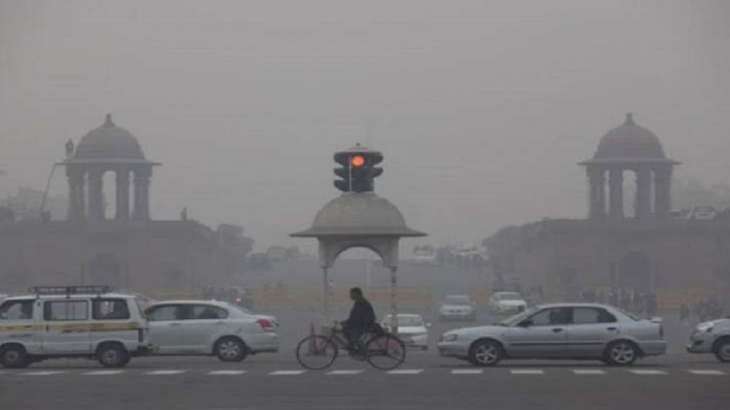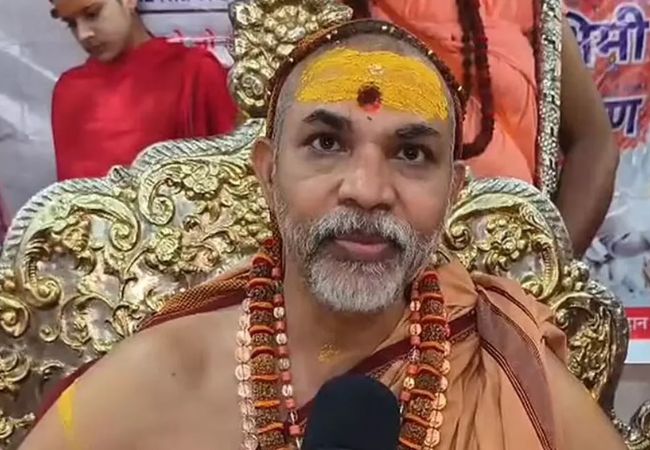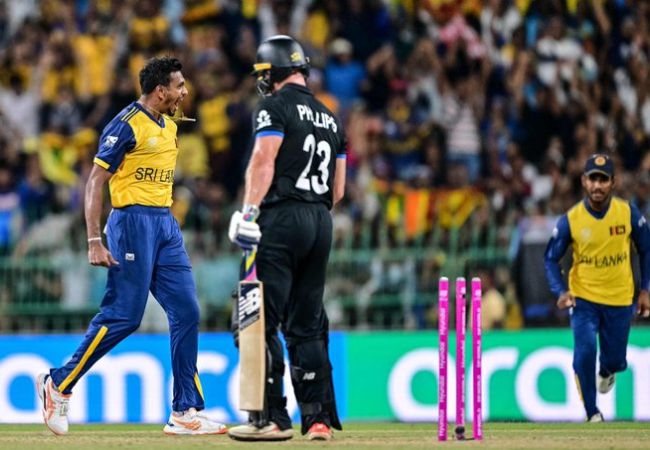New Delhi, Nov 3: The Bangladesh cricket team was forced to cancel its training session ahead of the World Cup clash against Sri Lanka due to extreme levels of air pollution in the national capital.
Bangladesh, who have been eliminated from the World Cup, arrived here on Wednesday following the defeat against Pakistan in Kolkata.
They were supposed to have their first training session on Friday evening but the team management decided against it considering the high pollution levels.
Delhi's air quality plummeted to the "severe plus" category on Friday even as the central government deferred the implementation of stricter measures under the air pollution control plan.
"Today we had a training session but the condition got bad from yesterday so we didn't take the chance because we still have two more days for training.
"Many( cricketers) went out yesterday and now they are having some kind of coughing so there is a risk factor involved and so we cancelled the training so that they don't get unwell," said team director Khaled Mahmud at the team hotel.
The last of the five World Cup games allotted to Delhi is scheduled for November 6.
Sri Lanka, whose players had to wear masks to combat air pollution in Delhi back in 2017, had played their World Cup game against India in Mumbai on Thursday. The following day is usually the travel day and the team doesn't train.
"We don't know what the decision will be (whether we will have to play here or not in the present condition) and whether the weather will get better or not and if it gets better certainly it is good for us and if that is not the case (and still we have to play) we still have to adapt to it and have to train tomorrow," said Mahmud.
"We still have two more days in our hand so we want the boys to be fully fit because these two games are very important for us," he added, referring to the Champions Trophy qualification scenario.
The top seven teams in the ongoing World Cup and hosts Pakistan will get to compete in the 2025 Champions Trophy.
On Friday, Delhi's 24-hour average air quality index (AQI) reached 468, placing it in the "severe plus" category. This is the stage at which all emergency measures, including a ban on polluting trucks, commercial four-wheelers, and all types of construction, are mandated in Delhi-NCR.
The city's AQI on Friday was the worst since the previous high recorded on November 12, 2021.
However, during a review meeting, the Commission for Air Quality Management (CAQM) decided to monitor the situation for a day or more before implementing stricter curbs.
Let the Truth be known. If you read VB and like VB, please be a VB Supporter and Help us deliver the Truth to one and all.
Lucknow (PTI): The Uttar Pradesh Congress on Wednesday staged a statewide protest demanding a fair and transparent inquiry into the FIR lodged against Swami Avimukteshwaranand Saraswati and those who filed the complaint against him.
In a statement issued here, the party said memorandums addressed to Prime Minister Narendra Modi were submitted through district magistrates in all districts of the state.
Uttar Pradesh Congress spokesperson Manish Hindvi told PTI that the memorandums were handed over through the district administration in all 75 districts.
In the memorandum, the party alleged that Saraswati and his disciples were "unnecessarily harassed and humiliated" by police on the occasion of Amavasya and were prevented from taking a ritual bath (at the Magh Mela). It further alleged that some disciples were manhandled and taken to a police station.
The memorandum also claimed that an FIR was later registered against Saraswati, his disciple Swami Mukundanand Brahmachari and several unidentified persons in a sexual harassment case. It termed the case a "conspiracy" aimed at tarnishing the seer's reputation.
Citing Articles 25 and 26 of the Constitution, the memorandum stated that these provisions guarantee religious freedom and the right of religious denominations to manage their own affairs.
It described the position of shankaracharya held by Saraswati as "one of the highest spiritual posts in Sanatan tradition" and alleged that the entire episode appeared to have been "orchestrated in a planned manner".
"We request that the background of the persons who got the FIR registered be investigated in a transparent manner by a retired high court judge and strict action be taken against them," the memorandum said.
It also sought a "fair and transparent probe" into the allegations levelled against Saraswati so that the truth could be established.
Earlier, Uttar Pradesh Congress president Ajay Rai had told reporters in Varanasi after meeting Saraswati that the party stood firmly with him.
The Congress said it would continue to press for an impartial inquiry into the entire episode.
On February 21, an FIR was lodged in Prayagraj against Saraswati and his disciple Mukundanand Brahmachari on charges of sexually abusing two persons, including a minor, over the past year at a gurukul and religious congregations, including the recently concluded Magh Mela.
Days after he was booked, Saraswati had said on Monday that he would not oppose his arrest and asserted that the "fabricated story" would be exposed sooner or later.
At a press conference on Wednesday, Saraswati alleged that criminals rule in Uttar Pradesh, level allegations and influence investigations, as he denied having any contact with the two persons for whose alleged sexual abuse he has been booked.



_vb_77.jpeg)
_vb_00.jpeg)
